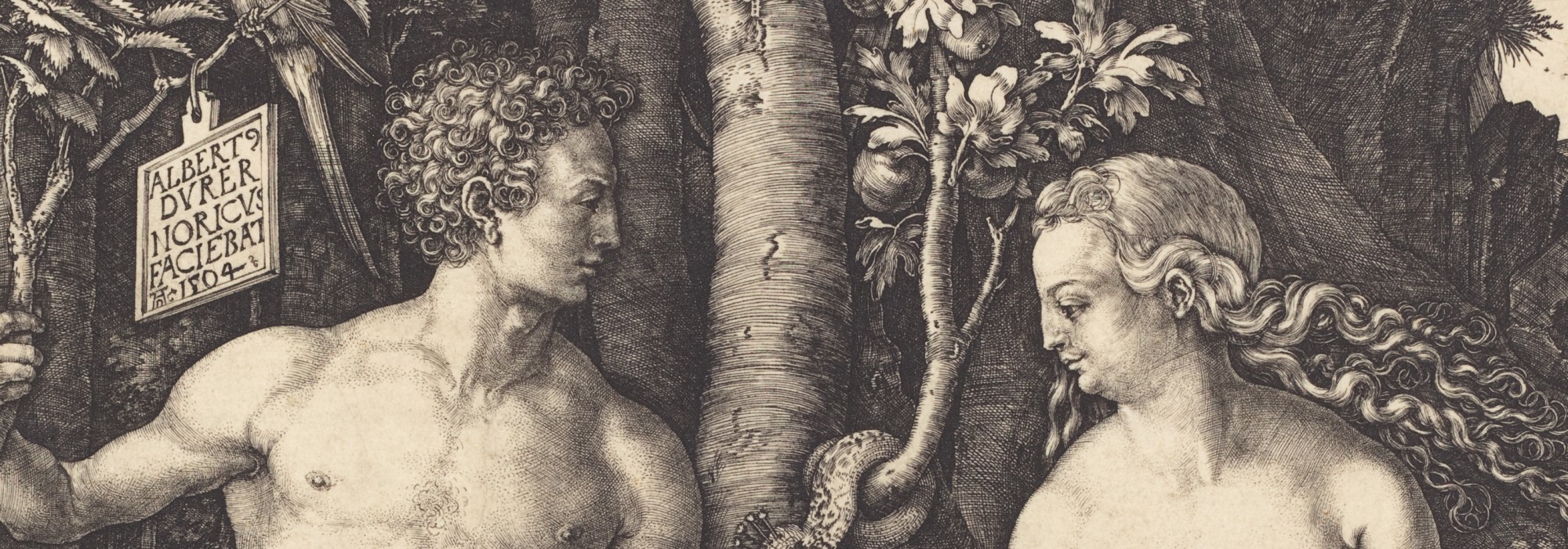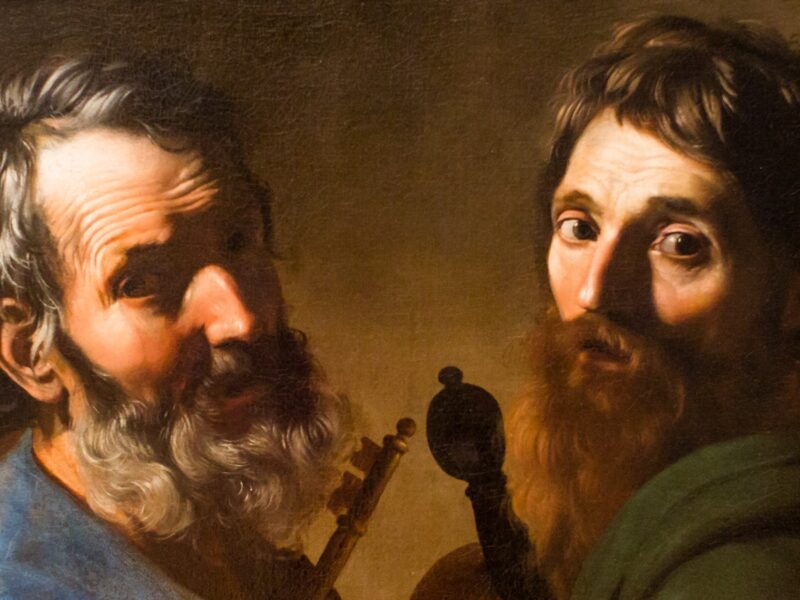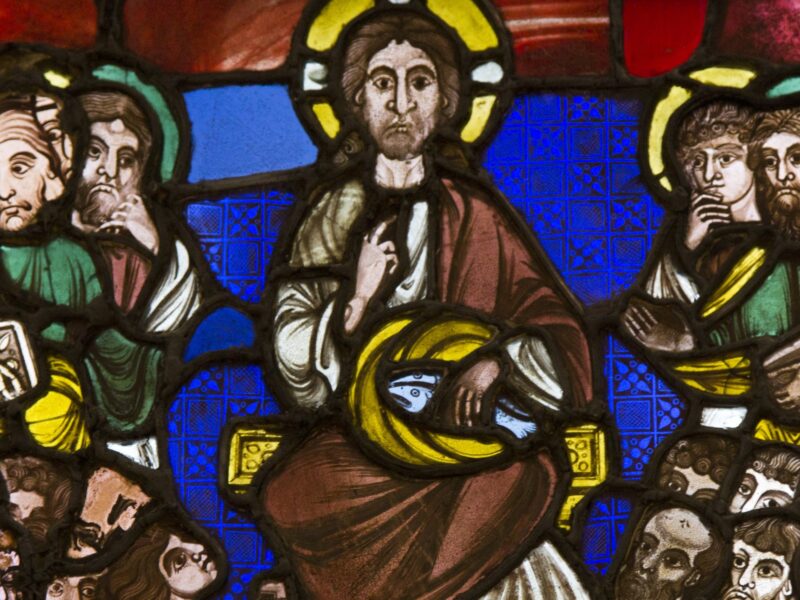
Restless Hearts
Twenty-Seventh Sunday of the Year. Br Albert Robertson preaches on original solitude and the vocation of humanity.
The account of the sixth day of creation ends with the words ‘God saw everything that he had made, and behold, it was very good’ (Genesis, 1:31). So it’s puzzling to hear early on in the creation account in Genesis 2 that there is something ‘not good’ about this created order. But this should not make us think that there is some kind of lack, problem, or defect to the creation. In the first instance this ‘not good’ speaks of Adam’s loneliness, what St John Paul II called man’s original solitude, which finds its answer in the creation of the woman Eve. It is only with the creation of Eve that man can at last sigh in recognition of the one with whom he shares flesh and bone.
But this ‘not good’ also speaks of the creature’s desire for something more, more even than his need for the woman, without whom he is unable complete the divine command to be fruitful and multiply. The creation is perfect in itself, perfect that is before the Fall and the imperfections we cause in creation through our sin. But the seventh day of creation has opened up the day of rest and sanctification which, unlike the other days of creation, has neither start nor end. It is this endless sabbath day which Adam longs for. This sense of ‘not good’ is somehow more basic than Adam’s desire for Eve, suggesting our innate understanding that the we want more than simply what is in the world around us. The world around us is not enough to satisfy us. It speaks of that restlessness that St Augustine described, a restlessness which can only find its answer when we rest in God, when we enter that sabbath rest of the seventh day.
A little unhelpfully, the reading from Hebrews begins just after the author has quoted Psalm 8 (Hebrews, 2:6-8), a psalm written in praise of creation, but more specifically of the place of humanity in exercising authority over creation. The psalm tells us that human beings are the crown of creation, and that our creation in the image of God is precisely seen in our authority over creation (c/f Genesis, 1:28). Clearly after the Fall, we experience creation as a hostile environment, we have to subdue it by the sweat of our brow (Genesis, 3:19), but in Jesus we see the true vocation of our humanity restored. In making himself lower than the angels and submitting himself to death, he has experienced death for all humanity, and has now been crowned with glory and splendour. In other words, that ‘not good’ of creation, that restlessness which always seeks more, finds its answer in Jesus Christ.
God, whose purpose is to bring a great many of his sons into glory, took on our human nature and accepted the way of suffering. It is this way of suffering which Jesus has told his disciples is the necessary path to his triumphant Resurrection (Mark, 8:31; 9:31; 10:33-34). By sharing our human nature, God is, as the author of Hebrews puts it, of the same stock as us who are to be sanctified, openly calling us brothers and sisters.
With this we can see more clearly why it is that Jesus reaffirms the truth that the union of man and woman in marriage makes them one flesh. The concession was given by Moses because the people refused to be taught, a lack of docility ultimately rooted in their hardness of heart and captivity to sin. The preparation of the disciples for his coming Passion is no longer simply aimed at telling them that he must suffer in order to rise. Instead, Jesus is pointing to the new possibility that will come about because of his one perfect sacrifice. We can now see what it will mean for us to be sanctified by the one who alone is holy, what it will mean for us to enter into that sabbath rest which we have longed for. Christ’s paschal mystery will give a new power to us to live as God intended, and marriage, which was instituted by God in creation as a natural bond, is raised to a higher, sacramental dignity, where Christ the sanctifier can make holy the most intimate aspects of human life.
But there is one last thing which these readings tell us. That innate restlessness which we feel is not something which we can solve on our own. In order to enter that endless sabbath we must become like a little child, realising that we do not enter into the kingdom by our own efforts, but with a loving child-like trust in him who sanctifies us. Here we come full circle back to our first parents who thought of their endless sabbath with God as something to be acquired, grasped, and stolen. Now Christ shows us a different way, for by imitating a child we imitate precisely their helplessness, or to put it more positively, their ability to receive all things as a gift.
Readings: Genesis 2:18-24 | Hebrews 2:9-11 | Mark 10:2-16
Picture: Adam and Eve by Albrecht Duerer (1504, public domain, detail)



Lynn Del Bianco op
Hi Albert! Always great to read your thoughts and see you personally on godzdog!! ? Think I have that right! Good luck with your studies! And know your always in prayer ? Lynn op
Mark Tanis
Superb rendering of the readings and the interrelatedness of the texts…. all so separate, yet all so intimately connected… I never caught that the “seventh day” had not bookends! WOW! Thank you!
Fr. Kevin Kraft (Kenya)
Great reflections, and very well put! I have a particular interest in married saints, and your reflections ring true with what I’m researching and little by little publishing in modest booklet form. If you share that particular interest (or even if you don’t) you might find the following little video interesting: ´
+
The Paulines’ audiovisual presentation of the series. A very nice short video introducing the series of “Married Saints” by briefly presenting some highlights from the lives of the first three couples investigated…
https://www.youtube.com/watch?v=yOP4_a5NPbU
Janice Harrison
Thank you Brother Albert for your reading of Sunday’s readings.Much appreciated. Thank you to all the Blackfriars Oxford. You come into my home each afternoon via livestream Mass.It is a daily joy.Thank you again;; your “New ” preaching ministry is certainly reaching so many the paradox of the pestilence.
Peace and blessings.
Jan Brisbane Australia.